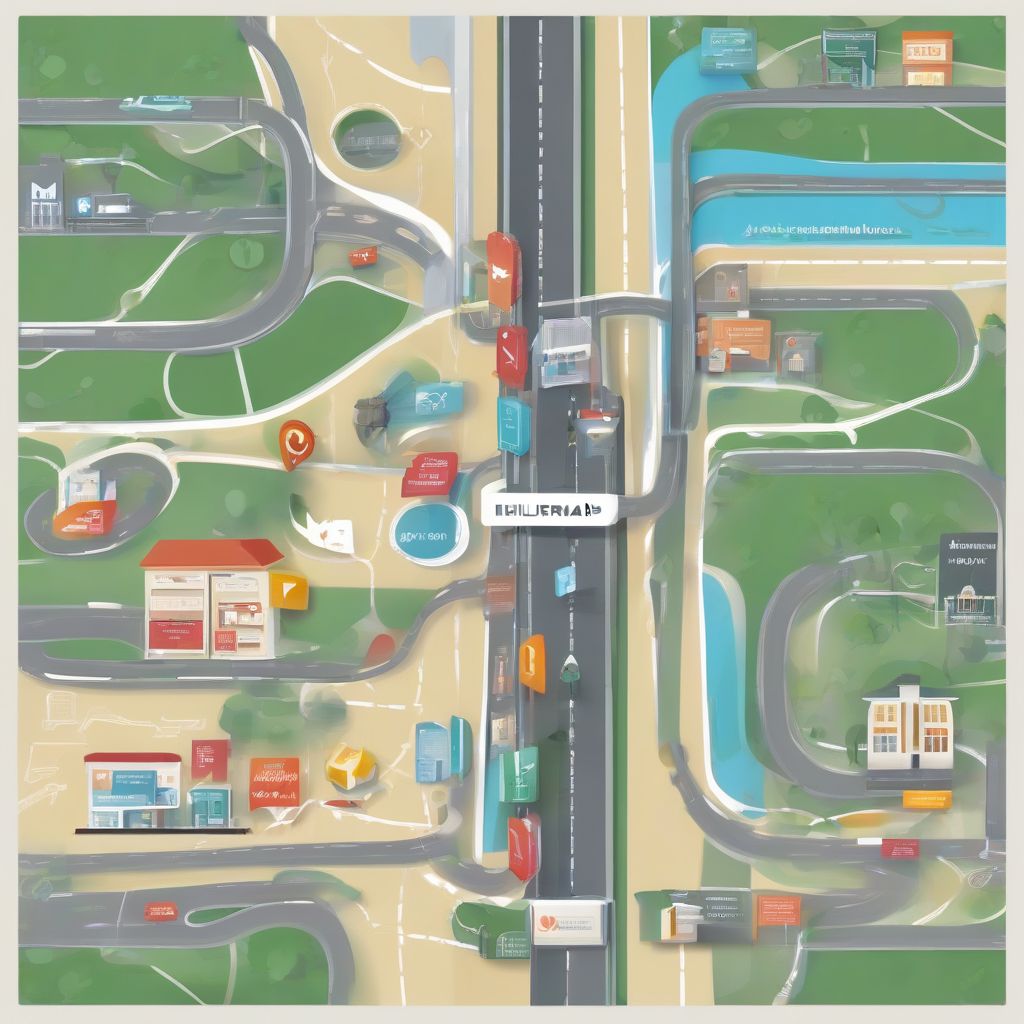Ever feel like you’re drifting through your career, hoping to stumble upon your dream job? You’re not alone! Many people feel this way, but there’s a better approach: a career development plan. It’s like having a roadmap leading you towards professional fulfillment.
 Career Development Plan
Career Development Plan
[amazon bestseller=”career-development-plan”]
What is a Career Development Plan?
Think of a career development plan as your personal strategy for growth. It outlines your career goals, the skills you need to acquire, and the steps you’ll take to achieve those goals. It’s not set in stone; it’s a flexible document that evolves with you.
Why You Need a Career Development Plan
Still not convinced? Here’s why a career development plan is essential:
- Clarity and Direction: It helps you define what you want to achieve in your career, providing a clear path forward.
- Motivation and Focus: Having a plan keeps you motivated and focused on your goals, even when challenges arise.
- Proactive Approach: It encourages you to take charge of your career, rather than leaving it to chance.
- Increased Marketability: By identifying and developing in-demand skills, you enhance your value to potential employers.
- Career Satisfaction: Ultimately, a well-defined plan increases your chances of finding work that is both fulfilling and rewarding.
How to Create Your Own Career Development Plan
Ready to take control of your career? Here’s a step-by-step guide:
1. Self-Assessment: Know Your Starting Point
Before charting your course, you need to know where you are now. Ask yourself these questions:
- What are my strengths and weaknesses?
- What are my passions and interests?
- What are my values? (What’s important to you in a job or work environment?)
- What are my short-term and long-term career goals?
- What skills do I need to develop?
2. Research and Exploration: Discover Your Options
Once you have a good understanding of yourself, it’s time to explore potential career paths.
- Research different industries and job roles that align with your interests and skills.
- Use online resources like LinkedIn, Indeed, and professional organizations’ websites to gather information about job descriptions, salary expectations, and required qualifications.
- Network with people in your field of interest. Informational interviews can provide valuable insights.
3. Goal Setting: Make it SMART
Now that you have a clearer picture of where you want to go, it’s time to set specific, measurable, achievable, relevant, and time-bound (SMART) goals.
- Instead of saying, “I want to be a manager,” set a SMART goal like, “I will obtain a project management certification within one year and apply for a project manager position at my current company within two years.”
4. Develop an Action Plan: Create a Roadmap
Break down each goal into smaller, manageable steps.
- What specific actions do you need to take to achieve each goal?
- What resources do you need? (e.g., training courses, mentorship, networking opportunities)
- Set deadlines for each step to keep yourself accountable.
5. Continuous Learning and Development: Invest in Yourself
The job market is constantly evolving, so continuous learning is key to staying competitive.
- Identify skill gaps and seek out training opportunities, such as online courses, workshops, or certifications.
- Attend industry events and conferences to stay updated on the latest trends and network with other professionals.
- Consider pursuing further education if necessary.
6. Networking: Build Valuable Connections
Networking can open doors to new opportunities and provide you with invaluable support.
- Attend industry events and connect with people on LinkedIn.
- Join professional organizations related to your field.
- Nurture your network by staying in touch and offering support to others.
7. Review and Adjust: Stay Flexible
Your career development plan is not a static document. It’s essential to review and adjust it periodically, ideally every six months to a year, or as needed based on your circumstances and career goals.
Don’t Forget These Key Ingredients!
- Mentorship: Find someone in your field (or a related one) who can provide guidance and support.
- Confidence: Believe in yourself and your abilities. Don’t be afraid to take risks and step outside of your comfort zone.
- Resilience: Setbacks are a part of life. Learn from your mistakes, adapt, and keep moving forward.
You’ve Got This!
Creating a career development plan takes time and effort, but the rewards are well worth it. Remember, your career is a journey, not a destination. By taking a proactive approach and investing in your growth, you’ll be well-equipped to navigate the path ahead and achieve your professional aspirations.
